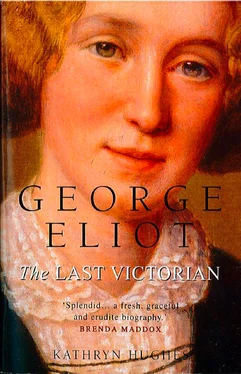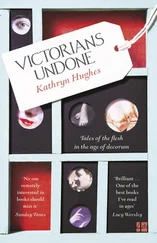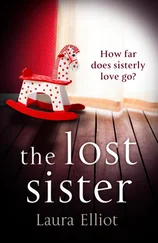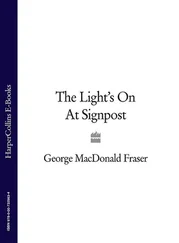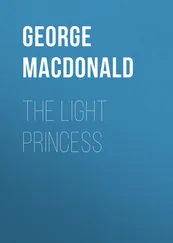Charles Hennell was a London merchant who, along with his tribe of adoring sisters, had been brought up as a Unitarian. Unitarianism was the most tolerant, rational and forward-thinking of the many Protestant sects which flourished during the first part of the nineteenth century. The novelist Elizabeth Gaskell, the writer Harriet Martineau and Florence Nightingale were all brought up within its generous and humane parameters. Unitarians rejected any kind of mysticism, including the doctrine of the Trinity and the divinity of Christ. Jesus was a great teacher, philosopher and living example, but not the Son of God. Although Unitarianism had developed outside the Anglican Church and within the dissenting tradition, it excluded much of the apparatus associated with nonconformity. There was no original sin, no doctrine of atonement and certainly no elect of chosen souls destined for heaven.
The Unitarians more than made up for their tiny numbers by their bustling, active presence in public life. With their intellectual roots in the Enlightenment philosophers Locke and Hartley, they placed a great deal of emphasis on the influence of education and environment in determining adult personality. Less concerned with the hereafter than the here and now, they worked hard to make certain that the best conditions prevailed for both individuals and societies to reach their full potential. This meant welcoming scientific progress, intellectual debate and the practical reforms that would naturally follow. In London, Coventry, Liverpool, Norwich and Manchester Unitarians were associated with a whole range of progressive causes from non-denominational education to the abolition of slavery. It was this social radicalism, combined with their rejection of Christ’s divinity, which made them highly suspect to the Anglican Establishment and even other dissenters, to whom they seemed little more than atheists and revolutionaries.
In 1836 Charles Hennell’s youngest sister Caroline, always known as Cara, had married a prosperous twenty-five-year-old Coventry ribbon manufacturer, Charles Bray. Since his adolescence Bray had moved in and out of faith. During his apprenticeship in London he had taken the same path as Mary Ann into dour, self-denying Evangelicalism. Since then he had enjoyed sufficient income and leisure to follow up a whole range of alternative ways of looking at the nature of man and his relationship to God.
Bray was particularly influenced by a strand in the Unitarian philosophy known by the awkward name of Necessitarianism. This had its roots in the work of the eighteenth-century philosopher Joseph Priestley, who maintained that the moral and physical universe was governed by unchanging laws authored by God. It was the duty of man to discover these rules and then follow them, in effect working with God to promote an ever-improving world. Bray’s reading of Necessitarianism resulted in a personal creed that was cheerful and vague, but productive of social change. He believed in a God who did not need to be formally worshipped since ‘God will always do what is right without asking and not the more for asking .’ 31 Instead of wasting time in prayer, Bray threw himself into a whole range of progressive causes designed to improve the quality of life for the people he employed in his flourishing ribbon business. His quirky, optimistic philosophy was summarised in his two-volume The Philosophy of Necessity , which was published in October 1841, just before he met Mary Ann Evans.
Given his puppyish lack of tact, it is surprising that Charles Bray managed to conceal his views from Cara until their honeymoon in Wales. It was then that he started his intellectual onslaught, believing that he ‘had only to lay my new views on religious matters before my wife for her to accept them at once. But … I only succeeded in making my wife exceedingly uncomfortable.’ 32 Uncomfortable she may have been, but as a woman of principle and integrity, Cara was not about to brush her new husband’s objections to Christianity under the table. One of the central tenets of Unitarianism was the individual’s duty to question every new piece of information, knowledge or experience, even if it implied an error in the status quo . Although deeply attached to her faith, Cara felt obliged to consider her husband’s proposition that there was no firm evidence for the divine authorities of the Scriptures.
Cara asked her brother, Charles Hennell, to undertake a rigorous assessment of Bray’s claims on her behalf. Hennell had only just completed his own very thorough investigation of these matters, concluding that the spare creed of Unitarianism did indeed rest on incontrovertible biblical evidence. But being a man of moral energy, he agreed to his sister’s request to re-evaluate his work. The result was An Inquiry Concerning the Origin of Christianity , which scrupulously separated the known historical facts of Jesus’s life from the later accretions of myth, fantasy and desire. Hennell took each Gospel in turn, explored the personal slant of the author and teased out those points at which objectivity gave way to invention. There is, Hennell argues, insufficient evidence to support the view that Christ was divinely born, worked miracles, was resurrected from the dead or ascended into heaven. Everything that happened to Him was explicable within ‘the known laws of nature’. Out of this exhaustive study Jesus emerges as ‘a noble-minded reformer and sage, martyred by crafty priests and brutal soldiers’. In a conclusion that echoes his brother-in-law Charles Bray, Hennell argues that there is no point in concentrating on a future life because it is impossible to know whether it exists. Man’s focus should be on the present, both in terms of the pleasures he can derive from ‘this beautiful planet’ and also of the improvements he can make in the lives of himself and others. 33
Once Cara Bray had absorbed her brother’s findings, she stopped going to church and suggested her husband do likewise. Her strict regard for conscience and horror of hypocrisy meant that she could not bear the idea of attending a service in whose teachings she did not believe. That did not imply, however, that she now considered herself an atheist. On the contrary, she pursued God as earnestly as ever – Mary Ann was to maintain that Cara was ‘the most religious person I know’ 34 – through private reading, careful thought and selective attendance at a variety of sermons, meetings and even services. She believed, as Mary Ann was to come to believe, that it was the duty of each individual to follow the truth wherever it might lead, without fear of social disgrace or superstitious terror.
Ironically, Elizabeth Pears first took Mary Ann with her on a visit to the Brays because she hoped, according to her brother Charles Bray, ‘that the influence of this superior young lady of Evangelical principles might be beneficial to our heretical minds’. 35 In fact, after nine lonely months in Coventry, Mary Ann doubted that she was about to have much of an effect on anyone. ‘I am going I hope to-day to effect a breach in the thick wall of indifference behind which the denizens of Coventry seem inclined to entrench themselves,’ she wrote to Maria Lewis on 2 November, ‘but I fear I shall fail.’ 36 She did not, although Charles Bray’s recollection of their first meeting, written up in the autobiography he produced at the end of his life, may well have been embellished by hindsight. ‘I can well recollect her appearance and modest demeanour as she sat down on a low ottoman by the window, and I had a sort of surprised feeling when she first spoke, at the measured, highly cultivated mode of expression, so different from the usual tones of young persons from the country. We became friends at once.’ 37
Either at this meeting, or a subsequent one, Mary Ann and the Brays started to talk about religion. The young woman who had been introduced to them as a strict Evangelical turned out to be almost as advanced a free-thinker as they were themselves. The point was a crucial one to Cara Bray who resented the implication, which hung around for years, that she and her husband were responsible for converting Mary Ann from deep piety to unbelief. For this reason, too, Charles Bray stressed in his autobiography that Mary Ann had already bought Hennell’s Inquiry by the time he and his wife met her in November 1841. However, the flyleaf of her copy is inscribed with the date 1 January 1842. Two explanations are possible. The first is that Mary Ann did not actually read the book until several months after meeting the Brays, which seems unlikely. The second, and more feasible, is that she had already tackled the book once before meeting the Brays and reread it subsequently during December, enthused by her acquaintance with the author’s sister and brother-in-law. Writing ‘1st of Jany’ on the flyleaf was her way of marking the moment when she formally renounced orthodox Christianity. For it was on the very next day, 2 January 1842, that she refused to go to church.
Читать дальше
